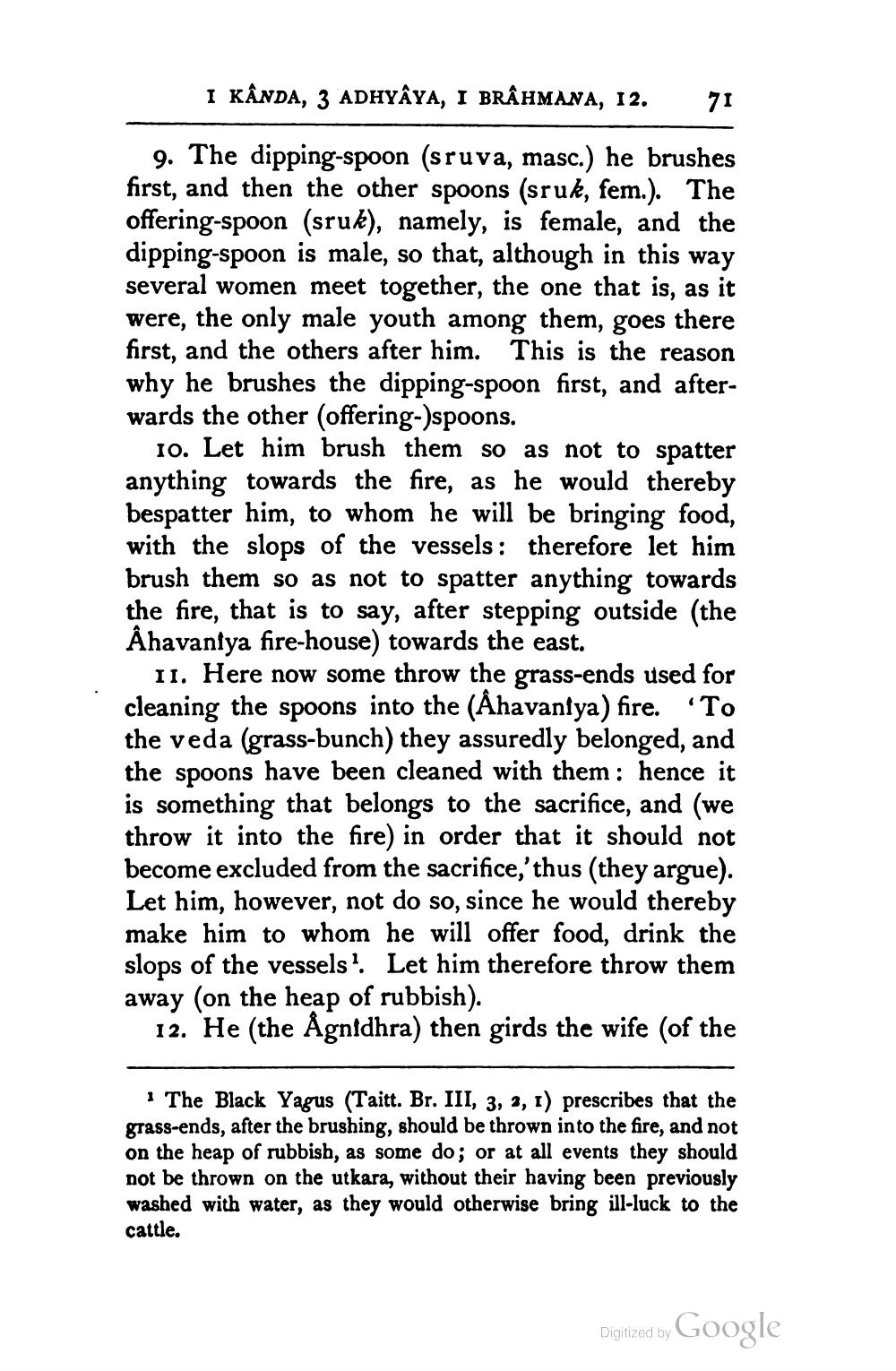________________
I KÂNDA, 3 ADHYAYA, I BRÂHMANA, 12.
71
9. The dipping-spoon (sruva, masc.) he brushes first, and then the other spoons (sruk, fem.). The offering-spoon (sruk), namely, is female, and the dipping-spoon is male, so that, although in this way several women meet together, the one that is, as it were, the only male youth among them, goes there first, and the others after him. This is the reason why he brushes the dipping-spoon first, and afterwards the other (offering-)spoons.
10. Let him brush them so as not to spatter anything towards the fire, as he would thereby bespatter him, to whom he will be bringing food, with the slops of the vessels: therefore let him brush them so as not to spatter anything towards the fire, that is to say, after stepping outside (the Ahavaniya fire-house) towards the east.
11. Here now some throw the grass-ends used for cleaning the spoons into the (Ahavaniya) fire. 'To the veda (grass-bunch) they assuredly belonged, and the spoons have been cleaned with them: hence it is something that belongs to the sacrifice, and (we throw it into the fire) in order that it should not become excluded from the sacrifice,'thus (they argue). Let him, however, not do so, since he would thereby make him to whom he will offer food, drink the slops of the vessels?. Let him therefore throw them away (on the heap of rubbish).
12. He (the Agnidhra) then girds the wife (of the
-
i The Black Yagus (Taitt. Br. III, 3, 2, 1) prescribes that the grass-ends, after the brushing, should be thrown into the fire, and not on the heap of rubbish, as some do; or at all events they should not be thrown on the utkara, without their having been previously washed with water, as they would otherwise bring ill-luck to the cattle.
Digitized by Google




